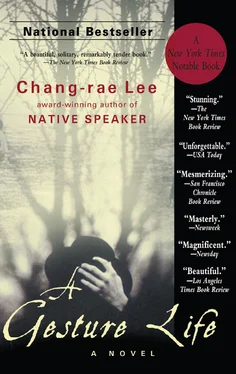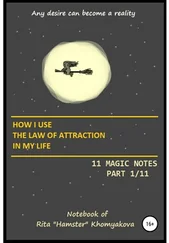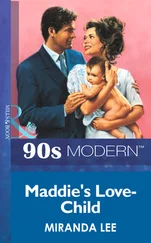“Isn’t that when you were seeing Mrs. Burns?” Sunny asks, the mention surprising me. “I thought she helped you, because she’d known him.”
“Mr. Finch?”
“Yes. I remember her saying to you, at the house, that she’d have a word with him. Their families being close for a long time. I thought she sort of vouched for you.”
“Well,” I reply, “I suppose you can say she did. Mr. Finch didn’t know me then as he does now. But it was nothing irregular.”
“I’m not saying it was,” Sunny says, sighing a bit. “I just remembered her all of a sudden. What she looked like.”
“She was quite dignified, you know. And kind.”
“Yes,” Sunny answers, nodding a little, though perhaps more to herself than to me. And then, almost sadly, “She was the sort of person who was always kinder to people than they were to her.”
I don’t have an answer to this, and after a moment Sunny makes some business of adjusting the cuffs of her suit jacket. I know what she’s going to say but she’s cut off by the sudden presence of Kari, the assistant manager, who’s holding an immense waffle cone of chocolate yogurt. A girlfriend, enjoying the same, is standing with her, grinning through her braced upper teeth.
“Hey, you guys!” Kari beams. “Don’t worry, Sunny, I’ve got good old Sheila at the desk. I waited for you before taking my break, but then I figured you guys might be here, bonding and stuff.”
“I’m coming right now,” Sunny tells her, just getting up.
“Don’t sweat it, boss. Sheila is handling it. You guys take your time. Hey, is Tommy here today?”
Sunny, now sitting, nods.
“Well, let’s go see Tommy,” Kari announces. She and her friend bid us goodbye and march off to the Kiddie Kare.
“I should go anyway,” Sunny then tells me. “It’s not really fair to Sheila.”
“Yes, of course,” I say, though no part of me wants her to go just yet. For sitting right here, I think, is the daughter — considerate, fair, attentive — most anyone could be happy for. And I say, “You must return to your proud establishment.”
“It’s not so proud for long.”
“Why shouldn’t it be?”
“Business is terrible.”
“What do you mean? What about all those customers, all the fine merchandise?”
“It looks better than it is,” she says somberly. “It’s not at all good, really. The corporate office wants to close the store. I think they knew it when they hired me. It was a horrible summer. People in Ebbington don’t have much extra money to spend. No one else knows this yet, but we’ll be closing at the end of the month.”
“This month? But that’s less than three weeks from now….”
“I know.” She says softly, “On Monday I have to give everybody notice.”
“But what about you?”
“What about me. When there’s no store, there’s no manager. I’ve been looking around, but this whole town is in the dumps. Lerner’s doesn’t have openings anywhere else. I’ll have to be a salesclerk somewhere again. It doesn’t matter. I’ll get by. I always have.”
“But there’s Thomas. Who will look after him? I know that day care can be very costly. You must look harder. You must find another management position. I can help you. I still know a number of businesspeople in Bedley Run—”
“Please!” she says quite forcefully. “I’ve been fine all these years. Let’s not start. I didn’t send the card to you to start something like this. And you should know I won’t take one step in that town, and neither will Thomas. There’s no chance of that. So please don’t try to change my mind.”
“But I can help you with Thomas,” I tell her. “I’ll pay for a sitter, or for day camp. Whatever else he needs, I’ll provide. Please let me do this, at least. Please, Sunny. It can’t hurt, to let me do this.”
And yet, invariably, we all know how it does. In a few moments Sunny leaves to go back to the store, and I decide to walk about the mall with the last of my tea. We’ve made a plan to speak once again, sometime next week, after which I’ll go to their apartment in Ebbington to pick him up for a short visit; we’ll take a fun shopping trip, for some new sneakers or toys. And now, though I half-promised Sunny I wouldn’t, I go past the Kiddie Kare once more, slowing my pace by the window, to see what he’s up to inside. I can find him too easily amid the plastic barrels and chutes; he’s by far the oldest and biggest, towering a bit too much over the other boys and girls, and I think how it is that Sunny was able to send that card to me, unsigned as it was, a message and non-message for the sole sake of her boy. And the idea entreats me once more, to wonder if something like love is forever victorious, truly conquering all, or if there are those who, like me, remain somehow whole and sovereign, still live unvanquished.
HOW I AM STILL UP SO LATE and sleepless in this darkened, unwarm kitchen, after spending the entire afternoon with Sunny’s energetic boy, is an amazement to me. I must be rejuvenated, or at least somehow, for now, made over. Surely it is in good part Tommy’s presence happily lingering with me, the slightly dizzied, hyperactive romp of him, the constant, as if self-winding locomotion of his sturdy, pumping limbs. It seems to me I should be tucked away in my bed and dreaming of myself on younger legs, running after the boy with joyous, flowing ease, instead of sitting here at the table with shoots of a draft prickling my feet and a tepid cup of green tea cooling in my hands. I am certainly concerned that I might be rubbing Sunny the wrong way, encroaching too far and too fast into the wide territory she has set between us, which I have never thought ill of her for and have even looked upon with a certain measure of relief and gratitude; she has always been able to exercise her resolve, a trait that was difficult to handle when she was young but one I am beginning to appreciate more with each passing day. So I am starting to think that the real cause of my restlessness is something that I saw this afternoon, which was most ordinary and trivial.
It was after I dropped Tommy off at the mall at the end of our appointed day together. He and I had thoroughly enjoyed a shopping spree along Route 3A, where we visited, in turn, the Toy Palace and the Sports Section and the old roller-skating rink, and then sat side by side on revolving stools at the ice cream counter of the Woolworth’s. It was a wonderful day for me, really, beginning at the toy shop where the stout little boy — whom I told people was my grandson — shed his initial shyness and healthy suspicion of me and suddenly bounded down the aisles touching and handling as many of the brightly packaged toys as he could. I told him he could pick out two things, though looking upon his desperate expression of trying to choose I weakened and said three, and soon enough I lost all resolve and it was five items he could have, then somehow seven. In the end he’d filled up the cart to the exact number, and I could tell he was fundamentally a well-raised boy because he picked out the smaller, modest things rather than some pedal-driven car or grandly boxed building set.
Sunny was somewhat cross with me when we arrived at the store, me bearing the bulging bags of his things and Tommy, drooling and gregarious, methodically aiming his special noise-and-light-making pistol at the Lerner’s customers. But I could see that she was taken, too, by the lightness of his feet, his giddy, errant leaps and twirls, and maybe, as well, with the way he kept circling the racks of clothes and then returning to me, to shoot me square in the belly, clicking away again and again. Sunny didn’t say much except to tell Tommy that he should thank “Mr. Hata,” and then nodded to me with a lukewarm smile and a wave of her hand. But she was not being unkind. She had given her employees the news of the store closing a few days earlier, and the mood on the floor and among the staff was decidedly somber, all the more distinguished from Tommy’s brusque, overpleased activity.
Читать дальше











![William Frith - John Leech, His Life and Work. Vol. 1 [of 2]](/books/747171/william-frith-john-leech-his-life-and-work-vol-thumb.webp)
![William Frith - John Leech, His Life and Work, Vol. 2 [of 2]](/books/748201/william-frith-john-leech-his-life-and-work-vol-thumb.webp)